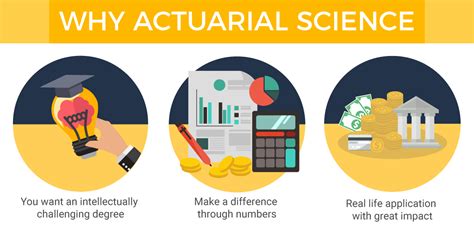
It is a subject which is an essential component of risk management. It uses concepts of economics, mathematics, statistics and computational methodologies to design and price insurance policies, monitor funds, recommend fair rates of bonus, investment models etc., based on future scenarios under financial, economic, social, demographic, technology and probabilistic situations. Professionals who study and practice actuarial science are called “Actuaries” and they are highly respected for their expertise in predicting future events.

There are multiple routes to study the subject and become an Actuary. There are graduation entry-options or you can start with the ACET entrance immediately after 12th Grade. You have to then clear multiple papers which are conducted by Institute of Actuaries of India (IAI). IAI is like what ICAI is for Chartered Accountants (CA) and ICSI is for Company Secretary.
You can opt for B.Sc and M.Sc in Actuarial Sciences OR Actuarial Sciences & Analytics from Indian universities but you will have to obtain student membership of IAI via ACET followed by some subsequent exams and then practice as a registered Actuary in India. Even a B.Tech, MBA graduate, Chartered Accountant, Cost Accountant or a Company Secretary can apply for IAI membership via ACET. For ACET, Mathematics is not compulsory in 11th and 12th grade. However, it is advisable to study the subject in high school to have foundational knowledge for clearing the ACET. English as a language in 11th & 12th is also required.
There is a direct-entry or Non-ACET route to get student membership under which you have to submit documents and apply for student membership. Find more details here.
It is a self-paced course in which you have to cross 7 stages. Students can however get a job after 1st or 2nd stage so they can start working while clearing the remaining stages. It can take upto 8 years to clear all stages. There are compulsory as well as optional subjects. There are 7 principle papers and 3 application based papers. 2 out of 8 specialist papers and 1 out of 5 advanced papers have to be chosen. To get a detailed look, check out here.
After clearing the first four stages (or 15 papers) you can apply for Associate membership. Then after qualifying or exempting Core Principles and Core Application series you can apply for fellowship. To acquire this, you will also require some work-experience and seminar attendance. There are international bodies also which conduct these exams. IFoA or Institute and Faculty of Actuaries is the professional body which represents and regulates actuaries in the United Kingdom. SoA or Society of Actuaries is a global professional organization for actuaries, headquartered in USA.

Job opportunities can range across different organizations like
Reach out for guidance with shortlisting and applying in the right university for you!
Building Blocx Team Wishes You The Very Best In Your Career.